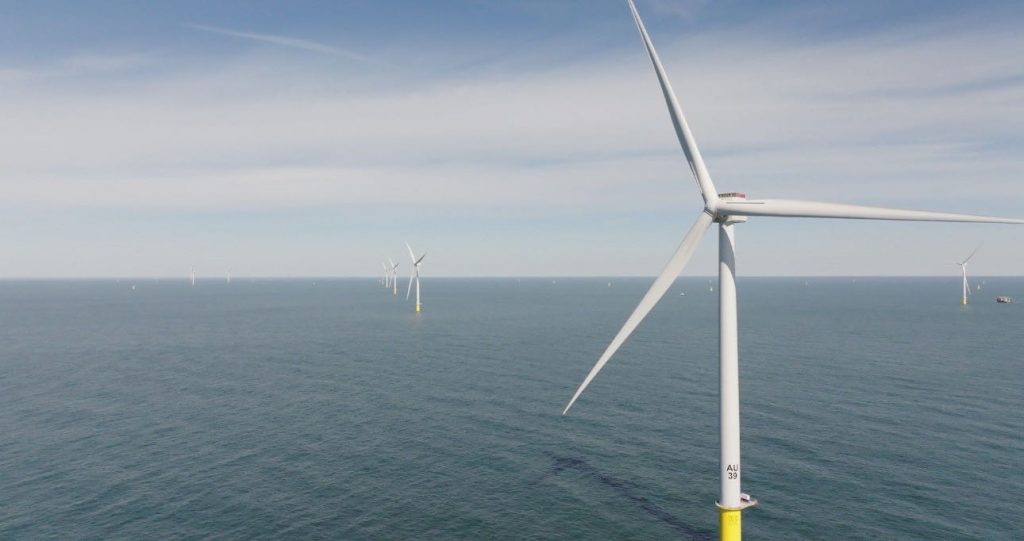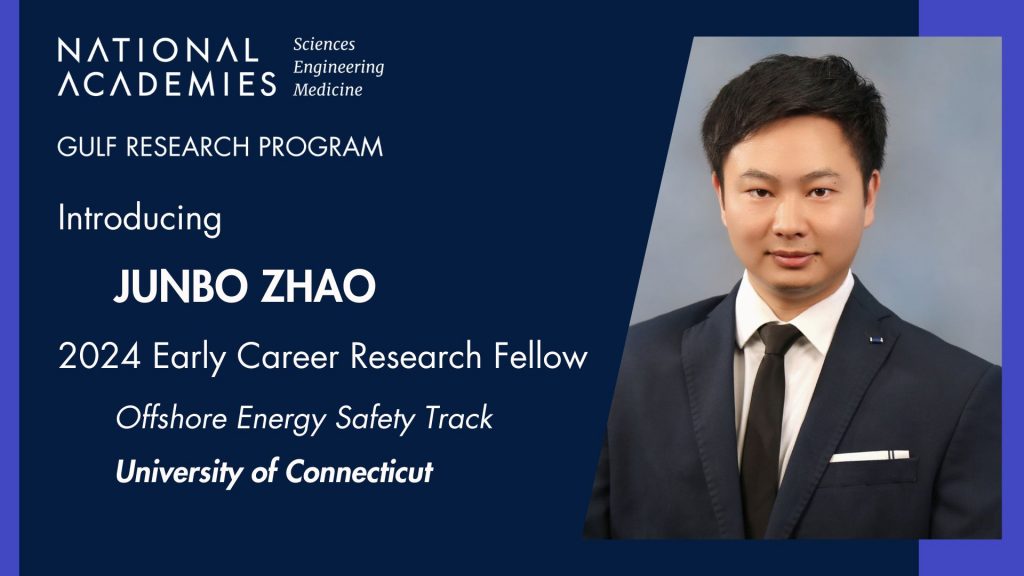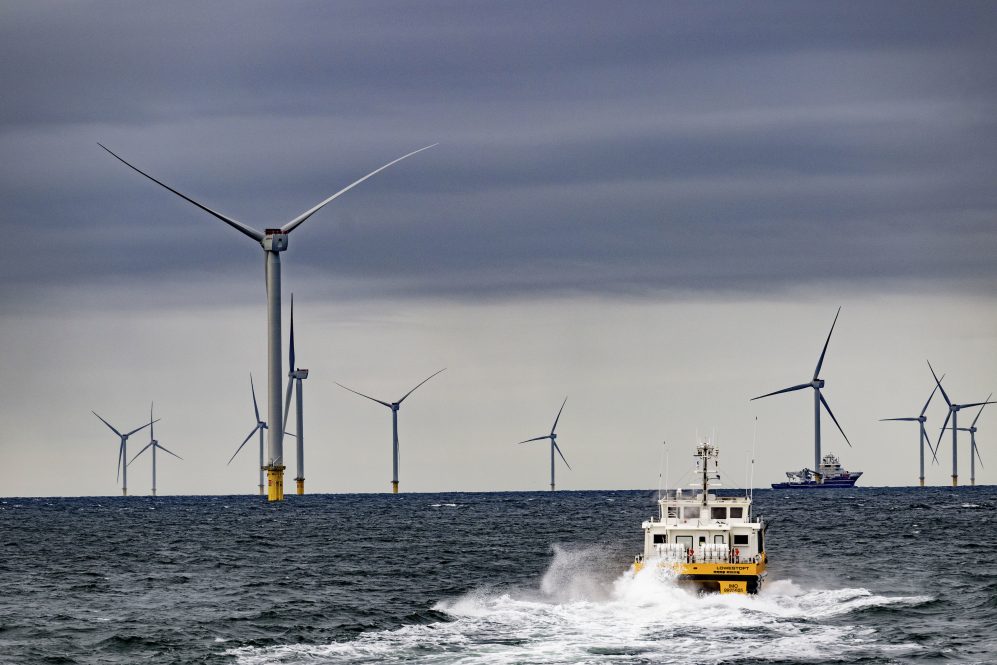In the Gulf Coast, offshore energy production—whether it involves oil and gas extraction, offshore wind farms, or wave and tidal energy systems—carries many risks and dangers ranging from environmental hazards to safety concerns for workers.
In attempt to make offshore energy production less prone to vulnerabilities and help mitigate safety concerns for workers, Junbo Zhao, Castleman Term Assistant Professor in Engineering Innovation, aims to design a systematic safety process that can be adopted by offshore wind and ocean wave generation industry operators.

As a newly named Early-Career Research Fellow by the National Academies (of Sciences, Engineering, and Medicine), Zhao joins the Academies’ Gulf Research Program’s Offshore Energy Safety Track. He and four other Safety Track fellows will collaborate on improving safety measures related to offshore energy production—particularly generating renewable sources—and minimizing environmental impacts and risks to communities and ecosystems in coastal areas.
“I have always been focused on how technological advancement can help solve challenging problems and benefit society,” Zhao says. “This is particularly important for my field of study—power and energy—where a new paradigm shift has been happening with the ambitious goal of renewable energy adoption and decarbonization goals.”
The Early-Career Research Fellowships program supports emerging scientific leaders as they take on untested research ideas, pursue unique collaborations, and build a network of colleagues who share their interest in advancing the safety of offshore energy systems and improving the well-being of coastal communities and ecosystems.
“We are delighted to have such a talented cohort of fellows pursuing innovative, collaborative research,” said Karena Mary Mothershed, director of Gulf Research Program’s board on Gulf Education and Engagement. “We look forward to supporting these early-career researchers as they implement research that will have a lasting impact on the Gulf of Mexico region.”
During his fellowship, Zhao plans to work with leaders at Eversource Energy, Avangrid, and hydrogen manufacturers in Connecticut to develop proof-of-concept designs that illustrate the feasibility, applicability, and benefit of integrated offshore wind and ocean wave energy exploration platforms.
He’ll use a digital twin platform to emulate various system operating conditions, help avoid human error/intervention, provide prognostic early warnings, and enhance offshore energy safety measures.
“I will further develop a design-by-safety process that is understandable and adoptable by operators in the offshore wind and ocean wave generation industry,” he says.

Zhao already brings in-depth and hands-on research experience in offshore energy exploration and safety to the Gulf Research collaboration. Between 2019-2021, he worked extensively with integrated energy company Entergy and National Renewable Energy Laboratory to understand the energy challenges and potential of the Gulf Coast. As part of this project, he partnered with mechanical engineers at Mississippi State University to design a renewable ocean wave energy converter system and investigated Entergy’s transmission systems for secure integration of potential offshore wind generations.
Additionally, he led two projects funded by U.S. Department of Energy to develop innovative tools of risk assessment and mitigation for offshore wind energy grid integration.
“These contributions pave the way for harnessing and securing the integration of Gulf Coast energy into the electric grid, contributing to the grid decarbonization goals for the Gulf Coast states,” Zhao explains.
Since joining the University of Connecticut in 2022 as an assistant professor of electrical engineering, Zhao has explored his research interests in power system modeling, estimation, security, dynamics and stability, uncertainty quantification, renewable energy integration and control, and machine learning.
He’s currently focusing on two extensive research projects.
For one, he’s studying electrical safety of offshore wind turbines in terms of their predictive health monitoring and undersea cable fault detection. Zhao collaborated with offshore wind developer Eversource Energy and fiber optical sensing technology provider NEC Labs America to develop fiber optical sensing systems to predict wind turbine health and provide at least 30% of accuracy improvement in undersea cable fault detection compared to existing technologies.
Secondly, as principal investigator and director of the Department of Energy-supported Northeast University Cybersecurity Center for Advanced and Resilient Energy Delivery (CyberCARED), Zhao is leading research on offshore energy system cybersecurity in attempt to resude possible failures and safety threats.
“Through CyberCARED, we’re designing effective cyberattack defense approaches and procedures to enable better human responses to unseen failures caused by attacks,” Zhao says. “By preventing cyberattacks, we’re significantly enhancing offshore energy system safety and preventing possible human injuries or even loss of life.”
“By preventing cyberattacks, we’re significantly enhancing offshore energy system safety and preventing possible human injuries or even loss of life.” — Junbo Zhao
Ji-Cheng “JC” Zhao, dean of the College of Engineering, says Professor Zhao’s innovative work embodies the forward-thinking spirit of the UConn College of Engineering. “His research, particularly on improving safety in offshore energy production, exemplifies the kind of critical R&D that will help shape the future of energy systems,” Dean Zhao says. “We are proud to see him recognized as an Early-Career Research Fellow and look forward to the impactful contributions his work will bring to the Gulf Coast and beyond.”
In addition to his fellowship, Zhao also is a research scientist at the National Renewable Energy Laboratory. He is the author of four chapters and more than 200 peer-reviewed journal articles and conference papers. Additionally, he is the recipient of multiple recognitions including the 2022 IEEE PES Outstanding Young Engineer Award (Society Level), 2023 AAUP Research Excellence Award-Early Career, the 2024 IEEE PES Technical Committee Distinguished Individual Service Award, and IET Fellow, Class of 2024.
Zhao became interested in power and energy while studying electrical engineering as an undergraduate at Southwest Jiaotong University. At the time, smart grid was a novel concept, but was needed to ensure reliable electric demands and resilient electric grids nationwide.
“I knew that power and energy was important for the future,” says Zhao, who earned his Ph.D. from Virginia Tech in 2018. “Climate change and extreme weather events are causing a lot of damage to our energy infrastructure. My goal is to develop some useful solutions together with industry partners and funding agencies to address this problem.”
 Achieving 100% clean electricity will require a vast build-out of new renewable energy resources, both on land and offshore, Zhao explains.
Achieving 100% clean electricity will require a vast build-out of new renewable energy resources, both on land and offshore, Zhao explains.
“My past experience and connections in the offshore wind energy industry will help me engage industry partners to collectively investigate offshore wind energy generation and transmission, both are critical energy infrastructures for the U.S.,” he says. “Specifically, I believe it is critical to ensure reliable offshore energy generation enabled by predictive monitoring of equipment health, quick failure diagnosis and efficient energy conversation via advanced power electronics for the exploration of wind energy.”
The National Academies’ Gulf Research Program is an independent, science-based program founded in 2013 as part of legal settlements with the companies involved in the 2010 Deepwater Horizon disaster. It seeks to enhance offshore energy system safety and protect human health and the environment by catalyzing advances in science, practice, and capacity to generate long-term benefits for the Gulf of Mexico region and the nation.



